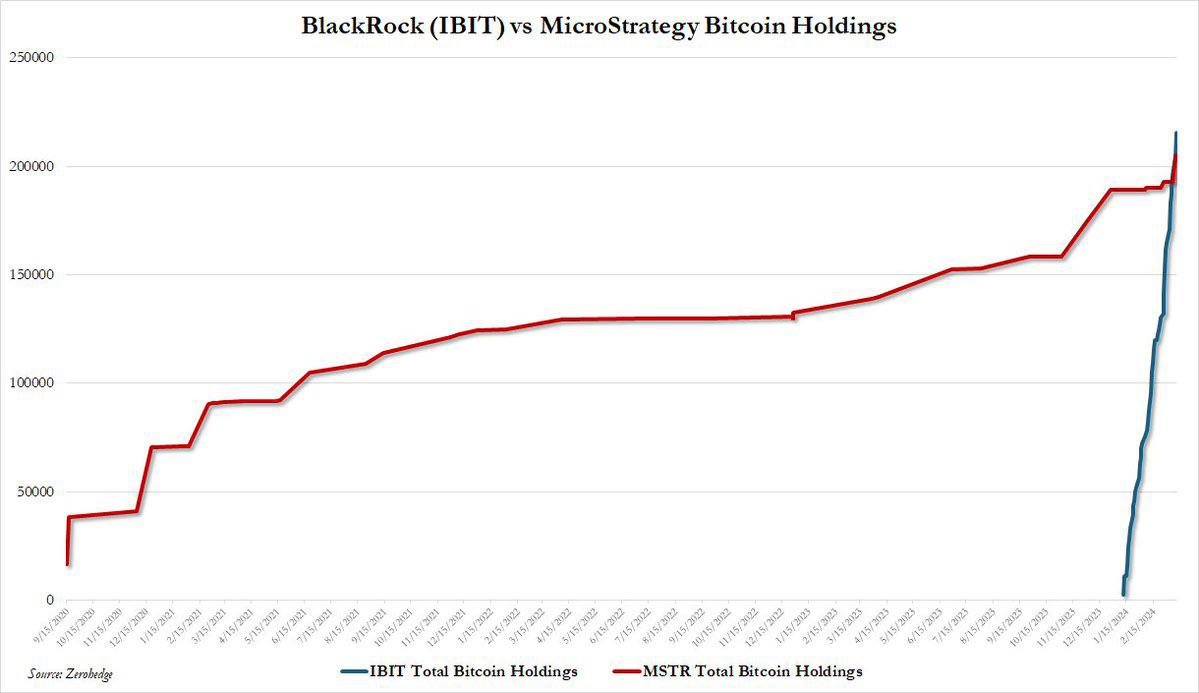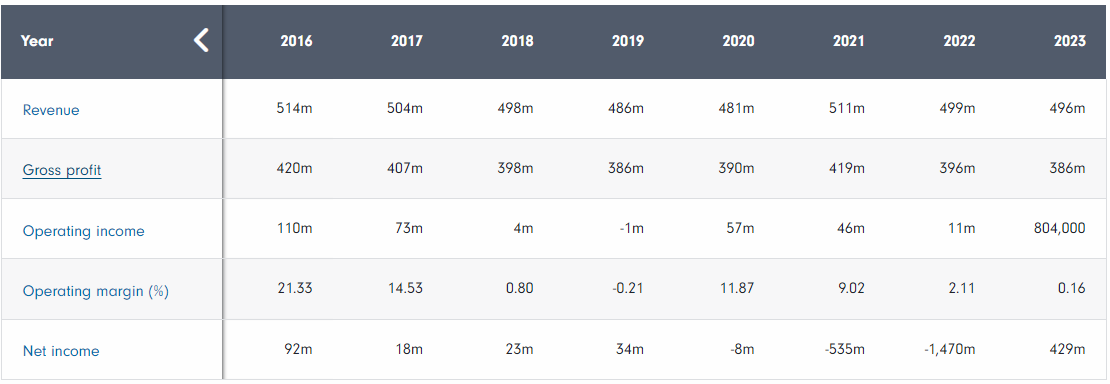[ad_1]
MicroStrategy’s founder and Chairman Michael Saylor has seen ups and downs for the last 25 years. First, the dotcom bubble burst of 2000 erased a staggering 99% of the company’s stock value. In 2022, Bitcoin, a significant part of MicroStrategy’s balance sheet, collapsed more than 70% from its ATH in November.
Yet, in March 2024, MicroStrategy (MSTR) saw a staggering 461.7% increase in stock price over the past year. Despite all the dramatic events, MicroStrategy has been a success story to its investors.
Who owns MicroStrategy?
MicroStrategy Inc. develops and provides enterprise analytics and mobility software, including the MicroStrategy Analytics platform and MicroStrategy Server. The company generates revenue through licensing arrangements, cloud-based subscriptions and related services tied to their platform.
Saylor is the largest MicroStrategy shareholder, with Class B holdings worth over $2 billion, with a 68% control of the votes. Capital Research and Management Company and The Vanguard Group, Inc. are the second and third largest shareholders.
Although Saylor sold 400,000 voting shares from December to April, his stake has not decreased dramatically.
Big bet
Saylor’s strategy as the chairman at MicroStrategy revolves around leveraging low-cost debt to raise substantial funds. With interest rates below 1% annually, the company accesses affordable capital, maximizing investment impact.
MicroStrategy innovatively uses its stock (MSTR) for debt repayment instead of cash, offering lenders a premium over the stock’s price at issuance. This approach benefits MicroStrategy and aligns interests with lenders.
In 2020, Saylor made the strategic decision to protect against currency debasement by investing MicroStrategy’s spare cash into Bitcoin. Around that time, MicroStrategy raised $3.4 billion through various financial instruments to acquire Bitcoin, totaling $4 billion in purchases at increasing prices.
The idea is that MicroStrategy can repay its fiat debt in the future by selling less Bitcoin, leveraging Bitcoin’s potential as a store of value with long-term capital appreciation. In an October 2020 tweet Saylor revealed that he personally held 17,732 BTC worth $250 million. It is safe to assume that he has acquired more since then.
Some have asked how much #BTC I own. I personally #hodl 17,732 BTC which I bought at $9,882 each on average. I informed MicroStrategy of these holdings before the company decided to buy #bitcoin for itself.
— Michael Saylor⚡️ (@saylor) October 28, 2020
Long-term strategy
In the past four years, MicroStrategy has acquired 214,246 BTC, which represents roughly 1.02% of the total supply. In its latest buying spree, company started buying Bitcoin in late December 2023, right before the latest bull run.
According to SEC filings, between Feb. 15 and 25, the company invested $155.4 million to acquire 3,000 BTC. Additional 9,000 tokens were purchased for $623 million convertible notes between March 11 and March 18.
MicroStrategy Announces Pricing of Offering of Convertible Senior Notes $MSTR https://t.co/GBR4yG4Ebk
— Michael Saylor⚡️ (@saylor) March 6, 2024
MicroStrategy has spent nearly a quarter of its total Bitcoin purchases in 2024, with an average cost more than twice that of last year’s average cost, according to data compiled by Bloomberg.
Today, the software company owns 214,246 BTC, valued at more than $14 billion, which is around 1% of total circulating BTC supply. MicroStrategy has been the biggest Bitcoin holder among public companies for quite some time. However, recently, BlackRock has surpassed MicroStrategy’s holdings through its iShares Bitcoin ETF (IBIT).

Recently, it was disclosed that BlackRock and Fidelity collectively own 428,304 BTC worth $27.7 billion through their spot Bitcoin ETFs. These ETFs hold 214,058 more Bitcoins than MicroStrategy.
Does the strategy work in the long run?
MicroStrategy’s average purchase price of $31,554 per BTC has resulted in a current market value of over $13 billion, representing a substantial return on their initial investment.
Since April 2019, BTC prices have surged from $5,170 to about $66,500 at the time of writing. Over the last five years, MicroStrategy’s stock (MSTR) has returned 910%, significantly outperforming broader market returns.
Although MicroStrategy shares recently retreated, the stock has surged over 90% this year, following a remarkable 346% surge in 2023.
However, the company’s stock price is not aligned with business performance. In 2023, MicroStrategy’s business generated nearly $496 million in revenue, while the operating income was only $800,000, down from $11 million in 2022.

Overall, whatever business model works, investors will like it. Saylor’s pioneering integration of Bitcoin into corporate treasuries has positioned MicroStrategy for long-term success and paved the way for other companies to follow suit. This strategy has demonstrated the potential for Bitcoin to serve as a store of value and has influenced broader adoption within the corporate sector.
[ad_2]

